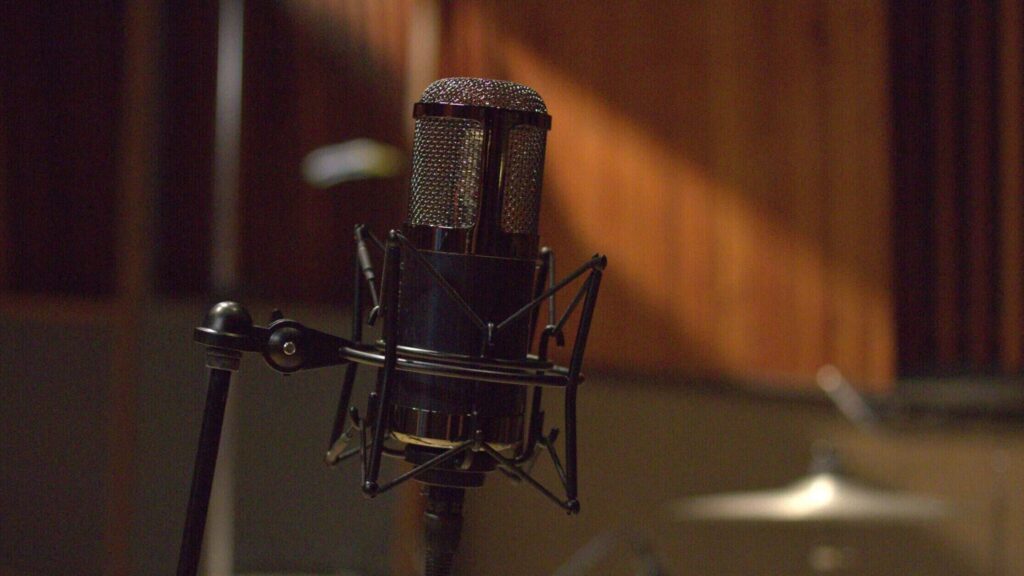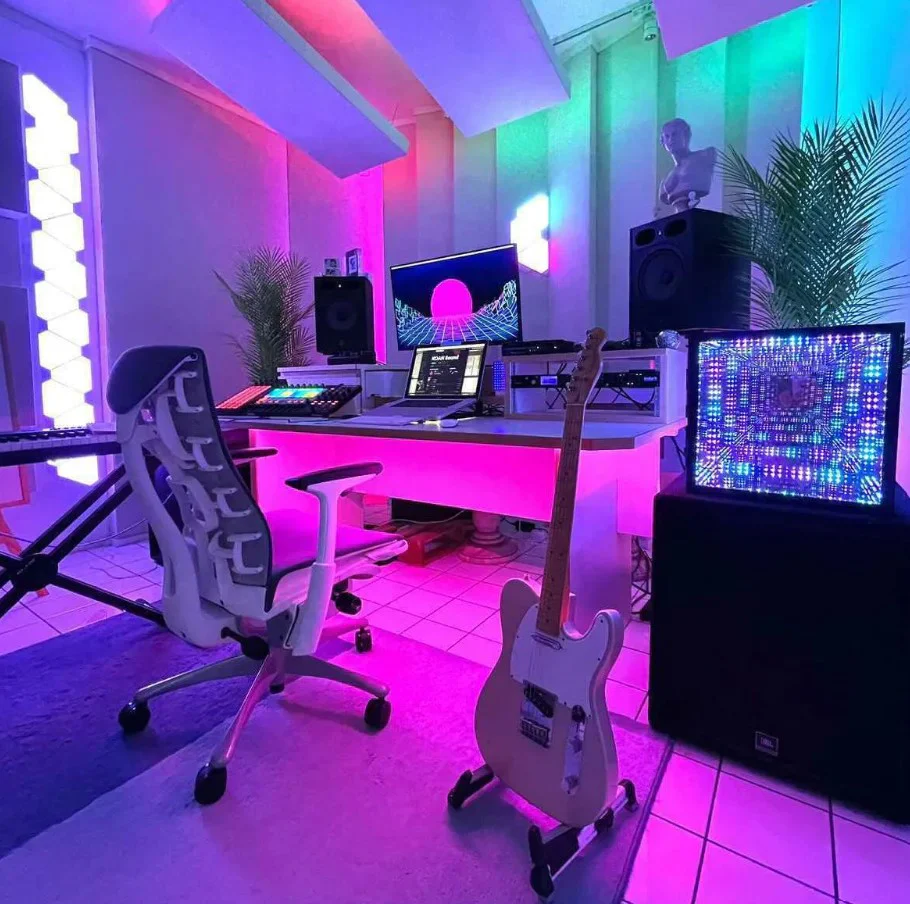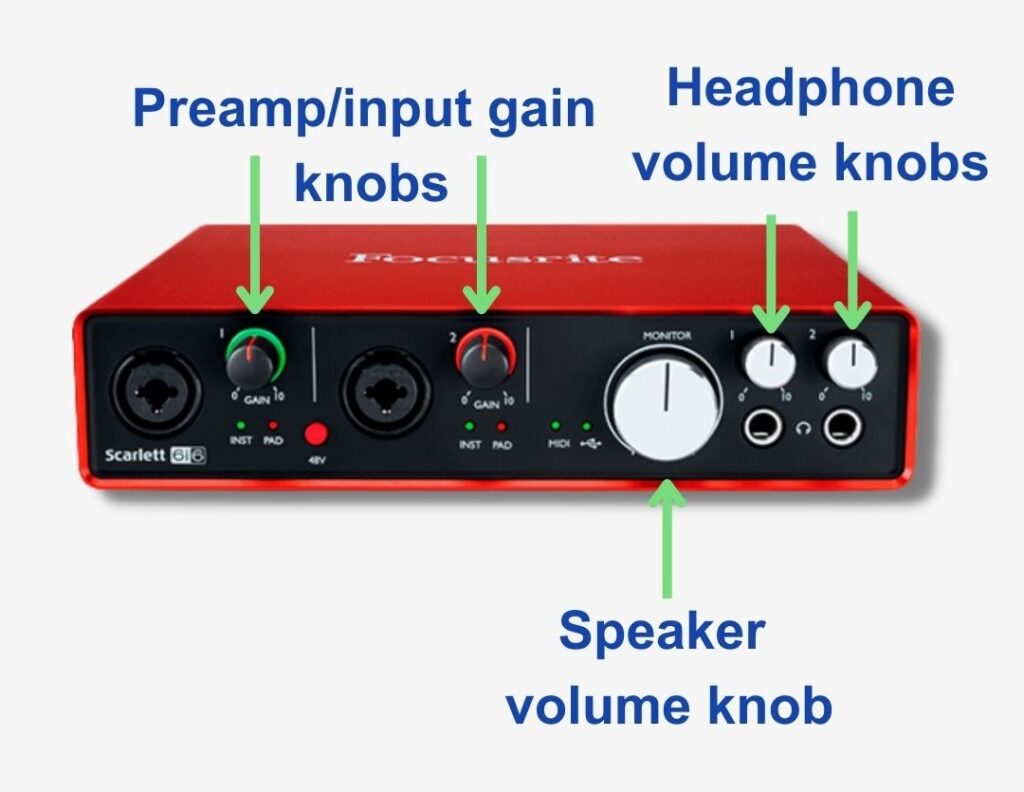When first starting out, rapping and making sure your flow is in sync can be hard. Hip hop is a skill that takes an enormous amount of time to master. There are many variables to consider and how your audience perceives your music may be different than your own perceptions.
In this article, I’ve put together 18 recording tips that tremendously helped me out when I first started my hip hop journey. By focusing on each individual one of these tips I was able to improve my music.
1. Pronouncing Your Words Correctly and Clearly
Making sure you’ve pronounced your words correctly and clearly is extremely important. This is one way that separates the amateur hip-hop artists to the professionals. Unless your music vocals are deliberately unclear (such as mumble rapping), then you should focus on making your vocals are clear as possible.
A great tip to improve your pronunciation is to open your mouth wider while you record. After I practiced this in my own recordings I could clearly see the difference in the clarity of my vocal recordings.
If you compare any big hip hop artist (Eminem, Logic, Hopsin, Tupac, Kendrick Lamar, J Cole, Drake) all their pronouncing is on point and is easy to understand.
A good quality studio microphone can really help to pick up the pronunciations of your words, making sure your audience hears them correctly.
2. Try Taking Short Shallow Breaths
Taking short shallow breaths instead of long deep breaths can make your vocals pronunciation sound much clearer. You can also rap much quicker. This is a breather technique rappers such as Tech N9ne and Eminem use. When you have mastered this breathing technique you will be able to rap for longer without being out of breath.
Another great breathing technique is to take very deep inhales and exhales just before you start rapping. This expands your lungs and will let you hold more oxygen for a longer set of time.
3. Avoid Being Monotone

One of the biggest turns offs in hip hop is when the artists are completely flat and monotone. If you’ve ever heard someone who’s monotone rap you will understand what I’m talking about. Expressing your voice and using high and lower pitch can make your music far more interesting and enjoyable to listen to.
To prevent a monotone delivery you need to put some energy into your raps. A great way to do this is to energize yourself before you record and pretend you’re rapping in front of a crowd. Make sure you are rapping from your diaphragm and remember to put some energy, passion, and emotions in your lyrics when you record them.
When you are new to hip hop and the recording process, sometimes novices are too focused on reading the lyrics that it affects how they give the delivery. The best way around this is to memorize your lyrics, that way you can focus more on the delivery.
4. Start Experimenting With The Distances of The Microphone

If you haven’t already you should start experimenting with your microphone placement. Recording at various distances from the microphone will result in very different types of sounds and will hugely affect how your recordings turn out. You should familiarise yourself with how the distances from your mouth and the microphone impacts your recordings.
The distances from the end of your pinky finger to the end of your thumb is how far your mouth should be from the microphone. Although I would recommend experimenting with different distances.
Sometimes you will want to achieve different results and knowing how the distances between your mouth and the microphone can impact your recordings is very useful.
If you’re a vocalist then you’re going to need a studio microphone to record your vocals.
5. Hydrate Yourself

Keeping yourself hydrated is so important and is often under appreciated and not taking as seriously as it should. A dehydrated throat can sound harsh and croaky. It can also stop your voice from being as clear as it could be, and may not be able to travel across the room as well as it should be when performing live.
Although sometimes when recording you may want to record your croaky vocals as this can be used as sound effects, but most of the time try and stay hydrated, especially when recording live.
6. Wear Headphones and Try Adjusting The Voice in Ear Setting
Wearing headphones while recording may seem obvious, but actually adjusting the voice in ear setting can change how you hear and record your vocals. Getting to know that setting is fairly important, and memoizing yourself with your preferred setting can help you achieve better sounding recordings. You can also play around with the headphone’s volume level to found out what suits you best.
Whenever I’m recording with headphones, sometimes I like to record with one ear off and one ear on. I found this to help me properly hear my voice and the sounds around me.
7. Try Recording From a Seated Position
Unlike with singing, with rapping, it’s not uncommon for artists to record from a seated position. Now and then I would recommend that you try recording your vocals from a chair and then see how the quality of your recordings compares. You may feel more at ease and more comfortable in a seated position which may result in higher quality recordings.
Personally, I get my best recordings when I’m most at ease and comfortable. Being seated helps me receive a chilled out state, whereas when I stand up I can feel under pressure.
8. Mood Lighting Can Really Help
Before I started using mood lighting I was skeptical about whether it works, but now after using it myself, I can say it had a positive impact.
There’s a reason why many professional studios will have dimmed lighting with colored lights. Mood Lighting in a music studio can help set the mood and keep the artist in a more relaxed, chilled out state. This helps the artist to be more creative and produce better quality recordings.
There are now LED light bulbs that you can buy that fit directly into your lighting sockets at home and can be controlled by your phone or a remote.
In fact, I just bought one from my local Asda for my bedroom studio. It was rather inexpensive and can change to over 700+ different colors.
Some features include a strobe light, fading in and out of different colors and brightness control. The brightness control is great because I can now dim the lights… and oh yeah, did I mention that I can also control the lights from lying in my bed! A huge bonus.

9. Warm up Your Vocals Before Recording or Performing
Many rappers and hip hop artists often forget to warm up their voice before recording or performing. It’s surprising how effective doing a simple vocal warm-up can help you achieve better sounding recordings.
Even basic humming exercises can really help. Your goal is to warm up your vocals so you’re ready to go once you hit the booth. You also want to try strengthening your diaphragm by doing simple breathing exercises.
Doing simple warm-ups before recording or performing can really help your flow and pronunciations of work. It may even help you think more clearly due to the breathing exercises.
10. Study Other Rappers
Nas (an American Rapper) recommends that you become a student of hip hop and study other artists. He says you need to concentrate on rapper’s different types of flows and rhyme schemes. This helped Nas develop a new understanding of hip hop an allowed him to change his flow and write better lyrics for his music.
11. Create an Altered Ego
Eminem (One of the largest rappers of all time) created an altered ego called ‘Slimshady’. This allowed him to say things and do things that weren’t directly under his own name. The altered ego made it so that he could be somebody else, which resulted in him creating a bunch of really good music. Under the altered ego, he could say things that were extremely controversial and inappropriate.
Do I recommend you create an altered ego? No, that idea has already been done. It wouldn’t look very original, but perhaps you could give it a try and compare how your music would differ. Even if you don’t release your music, it may make you become a better rapper and lyricist and open you up to different recording and lyric writing techniques.
12. Use Metaphors and Alliteration
Metaphors, when used properly, can make your music much more interesting and enjoyable to listen. It’s what many great rappers try to do. It’s harder than it seems, but when done right can make your music stand out compared to other artists.
Alliteration can also improve your rhyme scheme and flow. These two techniques are very under-utilised in the hip hop game at the moment. In the 1990s and beginning 2000s, hip hop’s foundation was built of metaphors and alliteration.
13. Practice Before You Record
Nobody should show up the studio or start recording their music until they have perfected their verses. After all, practice makes perfect. Practicing it before you’re at the studio or in front of your microphone should save you some time as you’ll already know how you’re going to rap it.
If you were to memorize your lyrics as well as the flow you’re going to use, then once you get to the recording process you will know exactly what to do and it the effort will show in your recordings.
14. Try Stacking Your Vocals

Rappers such as Tupac and Fabulous use to stack their vocals to make them sound more prominent in the recordings. This way they stood out in the mix and were more clear.
When you stack a verse you record each line twice and put them on top of each other. Rappers also do this at the end of the lines to make them stand out. When artists perform live they will often have a hype man do this for them.
Simply duplicating a track and adding a slight delay can also be used to make the vocals sound more ‘full’ in the mix.
15. Memorize Your Lyrics
Memorizing your lyrics can really help your flow sound that much better. It will also help you while performing your songs live or when someone asks you to spit a freestyle on the spot. Jay-Z (Hip hop artist) has trained himself to memorize his lyrics before recording his songs. He believes that training your memory is incredibly important.
Memory games are a great way to train your memory. Ticks to memorizing words are to come up with a list of words and put each word into a story and then trying to recall it.
16. Stop Overthinking
New artists will have a tendency to overthink their performance and music, which results in their music sounding unnatural.
Try to stop overthinking about how you are going to perform the lyrics or record certain sections of your songs. The best way to stop overthinking is to make sure you’ve practiced them enough before you start recording so that when you do start the recording process you know exactly how you’re going to rap your vocals. Knowing what emotions you’re going to use and what emphasize you are going to put on certain words can be worked out before you hit the studio to save yourself time.
Another common problem with novice artists is that they become stiff or nervous once behind the microphone which can affect how their music turns out. Try to stay calm, breath in and out and then record.
17. Perfection Will Hold You Back
This is a common trend with music artists as a lot of music artists tend to be perfectionists. Here’s a great analogy for perfection that has lasted with me for years, perfection is like driving around a roundabout and never taking an exit. It results in working on projects for an extensive amount of time but not progressing until everything is absolutely perfect and most of the time it will never be perfect.
You need to come to your realization that sometimes your music is never going to be perfect. Once you feel like your projects have reached a certain level of goodness, you need to stop perfecting over every small detail and bounce that project before you waste any more time.
That extra time could be spent on making new music or something else that is important.
18. Control Your Microphone Input Levels

And lastly… Sound clipping is a serious problem that artist’s face. It is when the recordings input has reached the maximum sound level that the digital audio workstation can handle. It results in the audio wave being clipped and can be a serious problem for recording artists as it distorts the sound and is unfixable.
To solve this issue, make sure your microphone gain levels are managed correctly and aren’t too high. (or too low, as that can be another issue!).
You should be trying to hit in the range of -12 to -6 decibels. Still questioning what levels your vocals should be? Read our article to get a better understanding of microphone input levels.
Related Questions:
What’s the best digital audio workstation? Each professional DAWs all basically have the same functionality, so there’s no clear answer to that question. Try using a few different workstations and see which one you prefer.
How do I improve my lyrical skills? The only real way to improve your lyrics is by practicing. If you practice every day you will get better and will be able to clearly see and understand different rhyme schemes and patterns that you didn’t see before.

